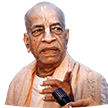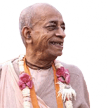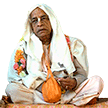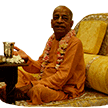Mortality - an essential subject: Difference between revisions
(Created page with "Category:Essential Subjects <!----------------------- edit below this line -----------------------> <!------------------------ begin introduction text below --------------...") |
(Vanibot #0041: Moves Choose Another box to the end) |
||
| Line 2: | Line 2: | ||
<!----------------------- edit below this line -----------------------> | <!----------------------- edit below this line -----------------------> | ||
<!------------------------ begin introduction text below ------------------------> | <!------------------------ begin introduction text below ------------------------> | ||
We have published Bhagavad-gītā As It Is because we accept Kṛṣṇa as He is speaking, without any interpretation. That is Vedic knowledge. Since the Vedic knowledge is pure, we accept it. Whatever Kṛṣṇa says, we accept. This is Kṛṣṇa consciousness. That saves much time. If you accept the right authority, or source of knowledge, then you save much time. For example, there are two systems of knowledge in the material world: inductive and deductive. From deductive, you accept that man is mortal. Your father says man is mortal, your sister says man is mortal, everyone says man is mortal—but you do not experiment. You accept it as a fact that man is mortal. If you want to research to find out whether man is mortal, you have to study each and every man, and you may come to think that there may be some man who is not dying but you have not seen him yet. So in this way your research will never be finished. In Sanskrit this process is called āroha, the ascending process. If you want to attain knowledge by any personal endeavor, by exercising your imperfect senses, you will never come to the right conclusions. That is not possible. | |||
Srila Prabhupada's books, lectures, conversations and letters offer a comprehensive presentation of this essential subject as seen in the Vaniquotes '''[[Vaniquotes:Category: | Srila Prabhupada's books, lectures, conversations and letters offer a comprehensive presentation of this essential subject as seen in the Vaniquotes '''[[Vaniquotes:Category:Mortal|Mortality]]''' category. An introduction from his teachings is given below in the following 8 quotes. | ||
<!-------- end introduction text and don't touch next three lines ---------> | <!-------- end introduction text and don't touch next three lines ---------> | ||
---- | ---- | ||
== Quotes from Srila Prabhupada's | == Quotes from Srila Prabhupada's teachings == | ||
<!----------------- edit quote boxes below this line -----------------> | <!----------------- edit quote boxes below this line -----------------> | ||
{{VaniQuotebox| | {{VaniQuotebox|The material body, made up of material ingredients such as earth, water, fire, and air, is mortal. Similarly, because this material universe is an amalgam of earth, water, fire, air, etc., it is also transitory|The material body, made up of material ingredients such as earth, water, fire, and air, is mortal. Similarly, because this material universe is an amalgam of earth, water, fire, air, etc., it is also transitory. But the spirit soul (which, incidently, has never been duplicated in the laboratory despite repeated efforts) is imperishable, as is its natural, eternal home—the kingdom of God. The process that takes the eternal soul to his eternal home is called sanātana-dharma, or "the eternal religion." '''(Renunciation Through Wisdom, Chapter 2.7)'''}} | ||
{{VaniQuotebox| | {{VaniQuotebox|The mission of the Lord's appearance and disappearance in the mortal universe is completely dependent on His supreme will|The mission of the Lord's appearance and disappearance in the mortal universe is completely dependent on His supreme will. He is not forced to appear or disappear by any superior energy, as the living beings appear and disappear, being forced by the laws of nature. Whenever the Lord likes, He can appear Himself from anywhere and everywhere without disturbing His appearance and disappearance in any other place. '''(Śrīmad-Bhāgavatam 1.15.32)'''}} | ||
{{VaniQuotebox| | {{VaniQuotebox|The six excellent opulences which He displayed in the mortal world by the agency of His internal potency, yoga-maya, are rare even in the Vaikunthalokas|In the Vaikuṇṭhalokas the Lord is merciful toward the liberated or nitya-mukta living entities, but in His pastimes in the mortal world He is merciful even to the fallen souls who are nitya-baddha, or conditioned forever. The six excellent opulences which He displayed in the mortal world by the agency of His internal potency, yoga-māyā, are rare even in the Vaikuṇṭhalokas. '''(Śrīmad-Bhāgavatam 3.2.12)'''}} | ||
{{VaniQuotebox| | {{VaniQuotebox|When Lord Krsna was within this universe, He seemed to be a human being because He appeared in a manner just suitable for His pastimes in the mortal world|When Lord Kṛṣṇa was within this universe, He seemed to be a human being because He appeared in a manner just suitable for His pastimes in the mortal world. He did not appear in human society in His Vaikuṇṭha feature with four hands because that would not have been suitable for His pastimes. But in spite of His appearing as a human being, no one was or is equal to Him in any respect in any of the six different opulences. Everyone is more or less proud of his opulence in this world, but when Lord Kṛṣṇa was in human society, He excelled all His contemporaries within the universe. '''(Śrīmad-Bhāgavatam 3.2.12)'''}} | ||
{{VaniQuotebox| | {{VaniQuotebox|We have to search out our eternal peace and prosperity in the kingdom of God, which is a place other than this mortal world|We have to search out our eternal peace and prosperity in the kingdom of God, which is a place other than this mortal world. Even such messiahs and reformers as Lord Buddha—who did not accept the existence of Godhead and preached morality and ethics in the spirit of atheism—and Śaṅkarācārya—who did not accept the Personality of Godhead and preached morality and ethics in the spirit of pantheism—never preached that there is any possibility of attaining eternal peace and prosperity in this material world. '''(Message of Godhead, Chapter 1)'''}} | ||
{{VaniQuotebox| | {{VaniQuotebox|Our sensory prowess, mental power, bodily strength, living force, immortality and mortality are all subject to the superintendence of the Supreme Personality of Godhead|Our sensory prowess, mental power, bodily strength, living force, immortality and mortality are all subject to the superintendence of the Supreme Personality of Godhead. Not knowing this, foolish people think the dull material body to be the cause of their activities. '''(Śrīmad-Bhāgavatam 6.12.9)'''}} | ||
{{VaniQuotebox| | {{VaniQuotebox|The Lord descends on this mortal world to show His pastimes in Vrndavana full of happiness|The Lord descends on this mortal world to show His pastimes in Vṛndāvana full of happiness. When Lord Śrī Kṛṣṇa was in Vṛndāvana, His activities with His cowherd boys friends, with His damsels, with His friends, damsel friends, and with the inhabitants of Vṛndāvana and His occupation of cowherding in His childhood, and all these pastimes of Lord Kṛṣṇa were full of happiness. '''(Bhagavad-gītā Lecture, 19-20 February 1966, New York)'''}} | ||
{{VaniQuotebox| | {{VaniQuotebox|Everyone is immortal, but he is fallen in such material condition that he thinks himself as mortal|Everyone is immortal, but he is fallen in such material condition that he thinks himself as mortal. Because I am spirit soul, therefore the Vedic injunction that feel:(?) ahaṁ brahmāsmi, so 'ham, means "I am as good as the Supreme Being," means "He is eternal; I am also eternal. He is also living being; I am also living being." That means qualitatively we are one, God and me. But quantitatively, He is great; we are small. '''(Bhagavad-gītā Lecture, 15 February 1975, Mexico)'''}} | ||
<!----------------- edit quote boxes above this line -----------------> | <!----------------- edit quote boxes above this line -----------------> | ||
''' | '''Mortality - [[Vaniquotes:Category:Mortal|explore more within this category]]'''. | ||
{{EsentialSubjectTotal}} | {{EsentialSubjectTotal}} | ||
<div style="float:left;"> | |||
{{EssentialSubjectnav}} | |||
</div> | |||
__NOTOC__ | __NOTOC__ | ||
__NOEDITSECTION__ | __NOEDITSECTION__ | ||
Latest revision as of 16:59, 22 November 2020
We have published Bhagavad-gītā As It Is because we accept Kṛṣṇa as He is speaking, without any interpretation. That is Vedic knowledge. Since the Vedic knowledge is pure, we accept it. Whatever Kṛṣṇa says, we accept. This is Kṛṣṇa consciousness. That saves much time. If you accept the right authority, or source of knowledge, then you save much time. For example, there are two systems of knowledge in the material world: inductive and deductive. From deductive, you accept that man is mortal. Your father says man is mortal, your sister says man is mortal, everyone says man is mortal—but you do not experiment. You accept it as a fact that man is mortal. If you want to research to find out whether man is mortal, you have to study each and every man, and you may come to think that there may be some man who is not dying but you have not seen him yet. So in this way your research will never be finished. In Sanskrit this process is called āroha, the ascending process. If you want to attain knowledge by any personal endeavor, by exercising your imperfect senses, you will never come to the right conclusions. That is not possible.
Srila Prabhupada's books, lectures, conversations and letters offer a comprehensive presentation of this essential subject as seen in the Vaniquotes Mortality category. An introduction from his teachings is given below in the following 8 quotes.
Quotes from Srila Prabhupada's teachings
Mortality - explore more within this category.
Vanipedia has now over 903 introductory articles compiled from Srila Prabhupada's books under the series titled Essential Subjects. All these articles can be seen in the Table of Content on the right side of this article and also here in this Umbrella Category. Browse through them to relish the breadth and depth of Srila Prabhupada's teachings - There is a subject for everyone.







